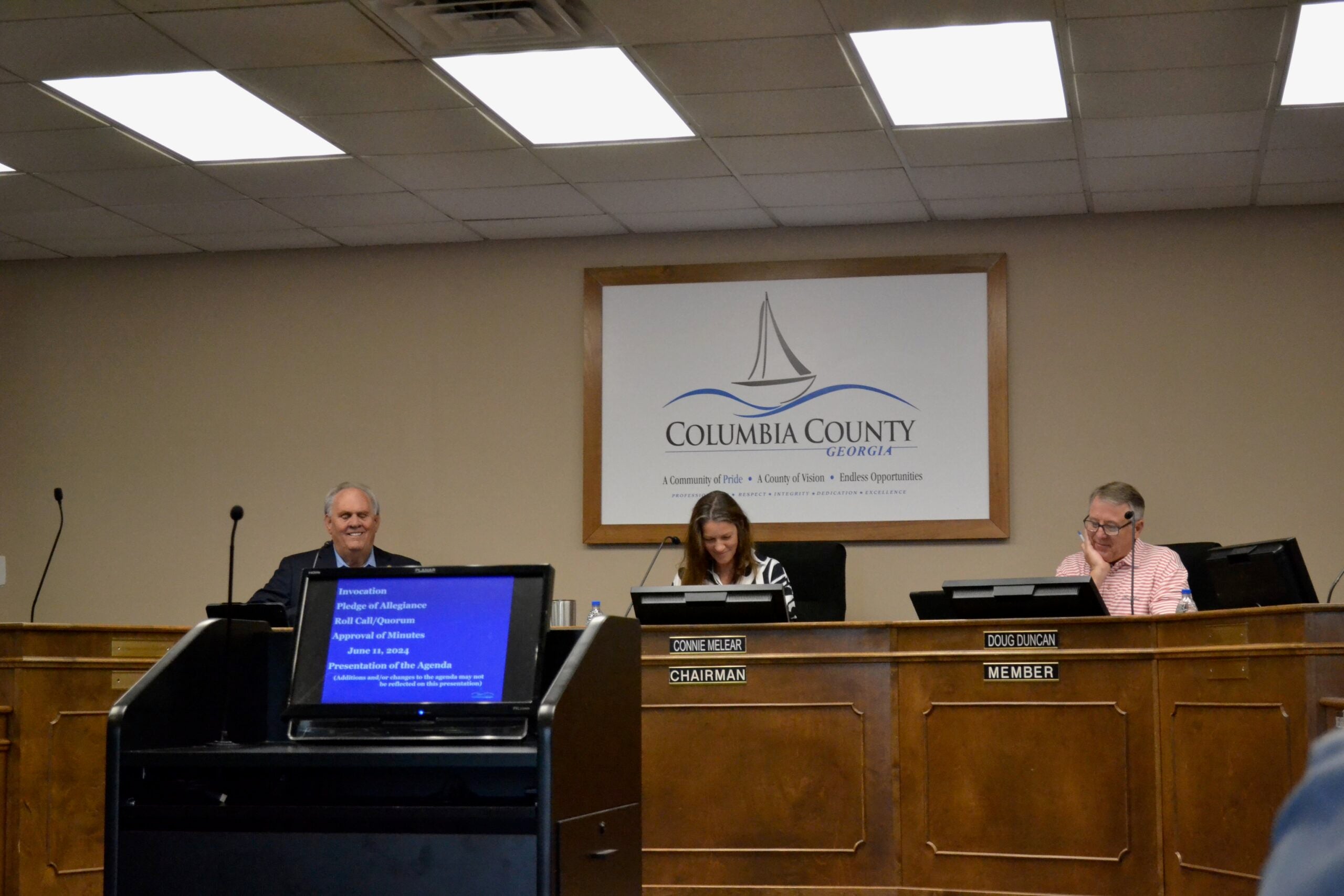The Columbia County Board of Commissioners held the second 2024 millage rate hearing on Tuesday, July 23.
County Manager Scott Johnson said when setting the budget for 2024-25, the county projected a 5% increase in the digest, but when numbers came it, it was actually an 8% increase. Because of that, the county is recommending a rollback from 4.895 mills to 4.795 mills for the Net M&O millage rate.
MORE: Augusta takes familiar path in replacing general counsel
“We are also asking to roll back the debt service millage rate as the digest grows then we need less money for debt service and then also a tenth of a mill on fire,” Johnson said. “They are currently at 2.788, going to 2.688. The net result of this is a rollback of almost a quarter mill…which takes the overall millage rate to 7.999 and is consistent with what this board has done 8 of the last 9 years.”
Johnson said the rollback is not to the full rollback rate, which is 4.568 mills. If the county went back to that rate, the three hearings would not have been required.
“The law requires us to notice a property tax increase even if you are reducing taxes,” Johnson said. “If you don’t go all the way to the rollback rate.”
Johnson also told the commissioners that tax are not going up and in fact, they are consistently going down, but it’s property values that are going up.
“That is the product of living in a community like Columbia County where people want to come here,” Johnson said. “The housing market is still going strong, houses sell quickly, sometimes for over asking. That’s the mark of a desired community.”
District 1 Commissioner Connie Melear asked about Georgia Senate Bill 349, which would cap the digest for homesteads at 3%. The bill was passed during the recent legislative session and will be on the November ballot as a constitutional amendment.
“What the bill intended to do was place some sort of cap on the growth in the digest on your homestead,” Johnson said. “It’s only for homesteads, it does not apply to businesses, does not apply to any rental property you may have and it requires the department of revenue commissioner to calculate an inflation rate every year and that inflation rate is then applied to local digests. It could be a 3% cap, it could be less than that, it could be more than that …It is much more complex than saying we’ll cap it at 3%…It’s going to cause confusion, it’s going us to have to change the way we do business and I’m not talking about tightening our belt. I’m talking about try to figure out how the digest is going to be affected and then at the end of the day try to figure out where we’re going to get the funds necessary to operate this government.”
Melear said cities could opt out, so values would be different values for city, school board and county.
“Each government has the ability to opt out of that…I think understanding the law, there may need to be some education, opting out may be the better solution,” Johnson said. “It’s not that we’re trying to tax our people more, it’s that there are unintended consequences of following this the way it’s written.”
The third hearing and vote on the 2024 millage rate will take place on Tuesday, Aug. 6 at 6 p.m. in the auditorium of the Evans Government Center complex.










